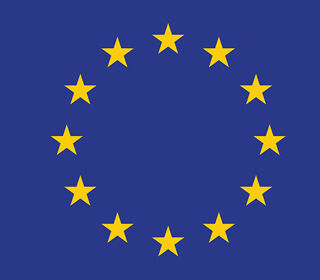
Blog Article

Professor Jon Yorke of Birmingham City University's Centre for Human Rights was part of the working group which devised and delivered the strategy to contribute to the global abolition of the death penalty.
Researchers
Consultancy background
Professor Yorke attended the Working Group 1 on EU Instruments in the Fight Against the Death Penalty, at the 12th EU-NGO Forum on Human Rights in 2010. The Working Group included among others, Judge Marc Bossuyt, President of the Belgium Constitutional Court and Mr Rolf Timans, Head of the Human Rights Unit of the European Commission’s Directorate for External Relations. The Working Group drafted the instrument to advise on the implementation of the European External Action Service policies on the role of EU promotion for the global abolition of the death penalty. This policy provided the foundational guidance from which the EEAS has evolved its strategy for contributing towards global abolition.
Consultancy process
Professor Yorke’s speech was reviewed in the Forum’s Final Report, and extracts are provided:
“Mr. Yorke, a Professor at Birmingham City University, recalled that the EU Parliament considered for the first time the abolition of the death penalty to be within EU competence in 1979. Since then, EU resolutions and statements had proliferated. Some were aimed internally to encourage Member States to sign the 6th Protocol to the European Convention on Human Rights. Others were more of a symbolic character. This long-established symbiosis between the internal and international approaches has become all the more important in the EU after the Lisbon Treaty’s entry into force.”
“Mr Yorke’s presentation then focussed on three main elements: the important role to be played by the High Representative, the relationship between the Council of Europe and the EU, and the issue of funding. Mr Yorke recalled that under Article 188 of the Lisbon Treaty, the High Representative shall be in charge of establishing all appropriate forms of cooperation with the UN, the Council of Europe and the OSCE. It was therefore imperative that he or she received the most up-to-date information on the death penalty in all countries. Mr Yorke suggested that this could be facilitated through collaborative efforts with NGOs and academics - and the development of a PhD community - constantly feeding information into the Office of the High Representative which would enable the Office to react more quickly on this issue.
While commending NGOs for their excellent understanding of the situation on the ground, Mr. Yorke insisted that academics should also become more involved in order to contribute theoretical nuances to the exercise of data gathering. Forming a PhD community, attached to and jointly supervised by both NGOs and universities, would help promote better understanding of country situations with regard to the death penalty.”
“Mr Yorke inferred the need to view the abolition of the death penalty as part of an ongoing educative and political project, within the Stockholm Programme's education on criminal law, human rights and dialogue with civil society. He further suggested that it might prove beneficial if the EU Guidelines were to include a policy statement acknowledging the need for continued education within the EU on the inefficacy of the death penalty, and on the death penalty as a violation of human rights.”
(Source: Final Report, 12th Annual EU-NGO Forum for Human Rights: EU Human Rights Instruments and the Lisbon Treaty: State of Play and the Way Forward, European Commission, Brussels, 12-13 July 2010).
Consultancy outcomes
Since this time Consultancy members have assisted in the delivery of this strategy, with an emphasis on identifying and assisting foreign nationals facing the death penalty around the world. As part of this work, the project received funding from the European Commission to support European nationals facing the death penalty in South-East Asia, the Middle-East and North Africa.
The work was conducted under the Directorate-General for International Cooperation and development (DG DEVCO), the EEAS and legal services to provide information and advice as to how best to effectively intervene in matters of the death penalty. These included the design of financial instruments enabling the granting of aid to projects working on key issues in target regions, to the formulation of the EU Minimum Standards and EU strategies in amicus briefs in individual cases and impending executions.
This project has produced the publication that Professor Yorke co-authored with Dr Christian Behrmann, Legal Officer at the European External Action Service (EEAS), The European Union and the Abolition of the Death Penalty (Pace International Law Review Online Companion).